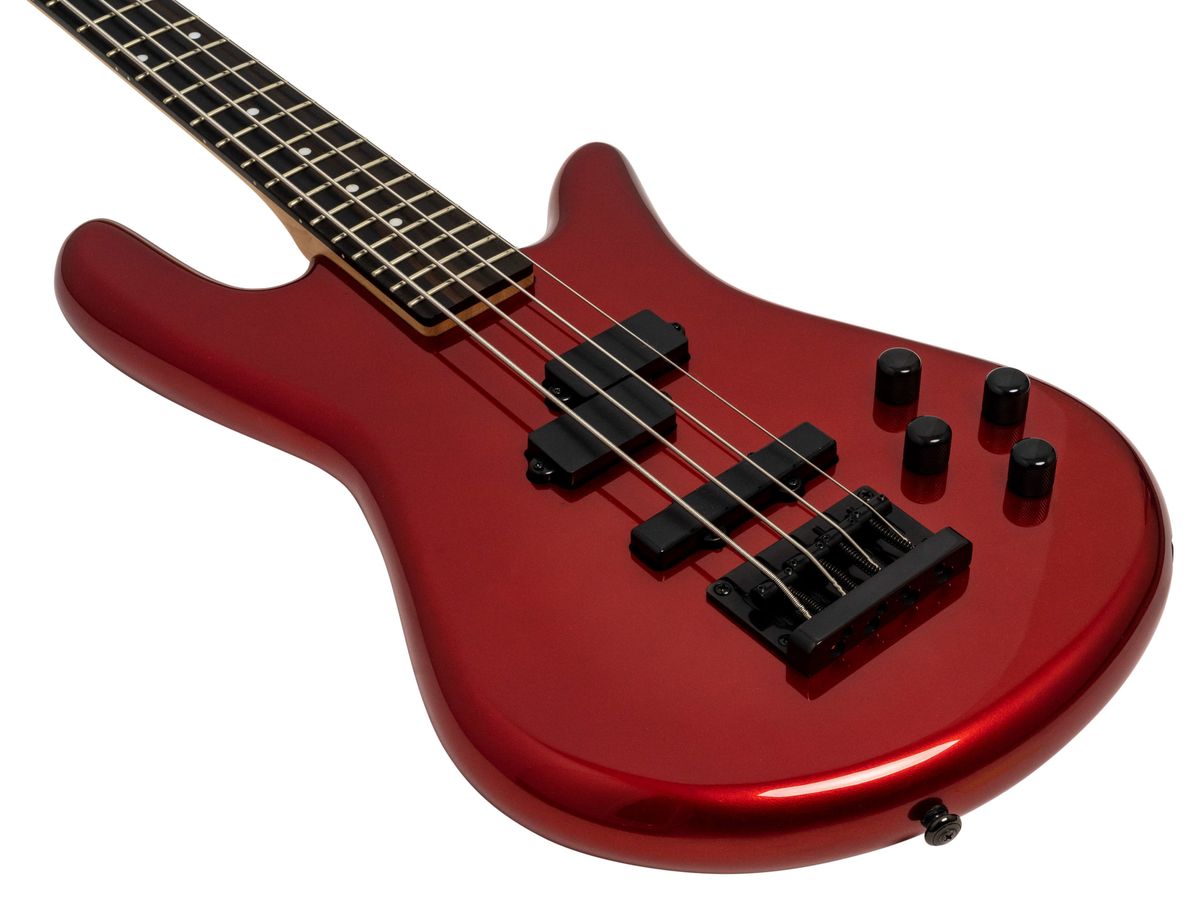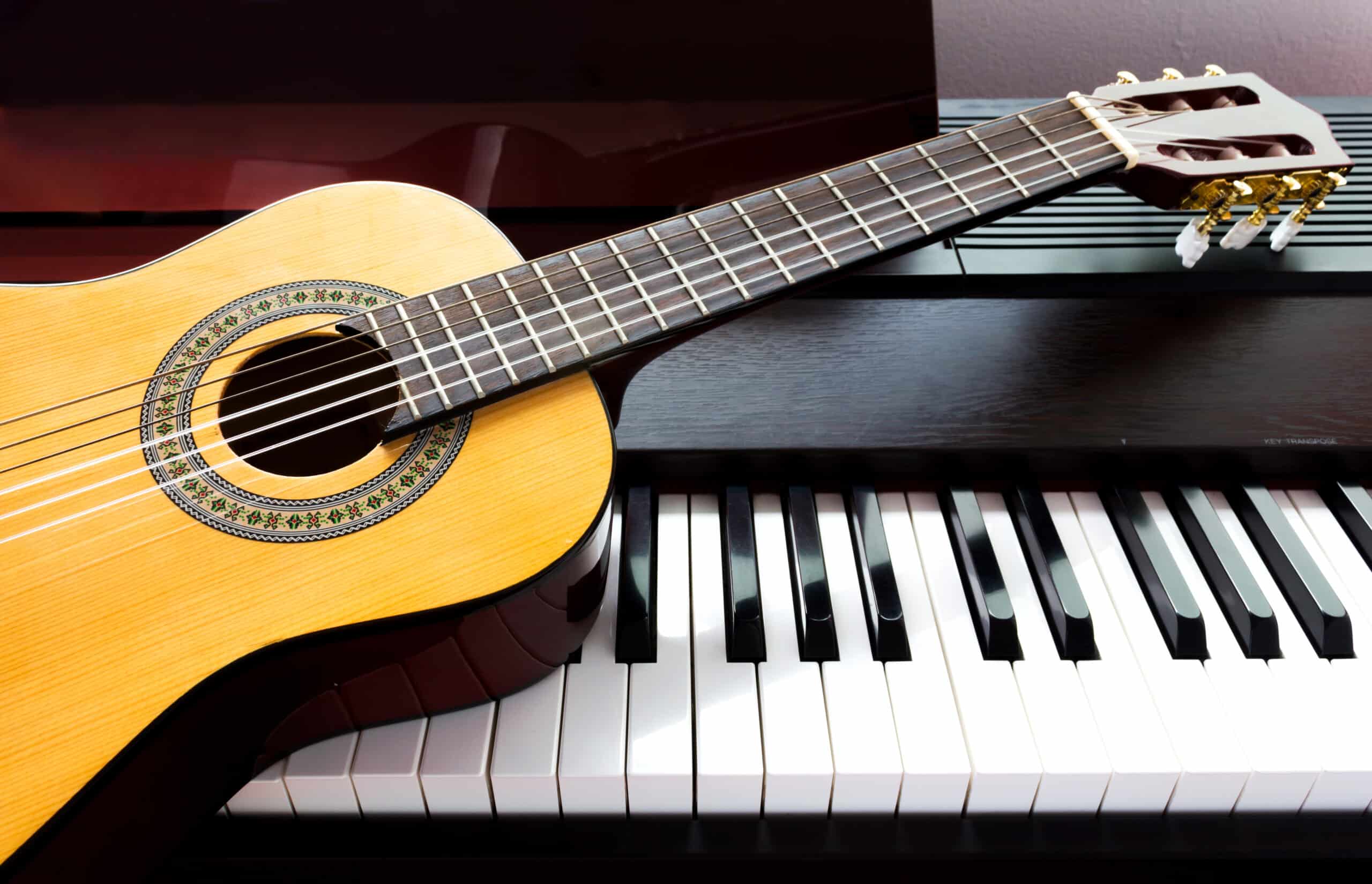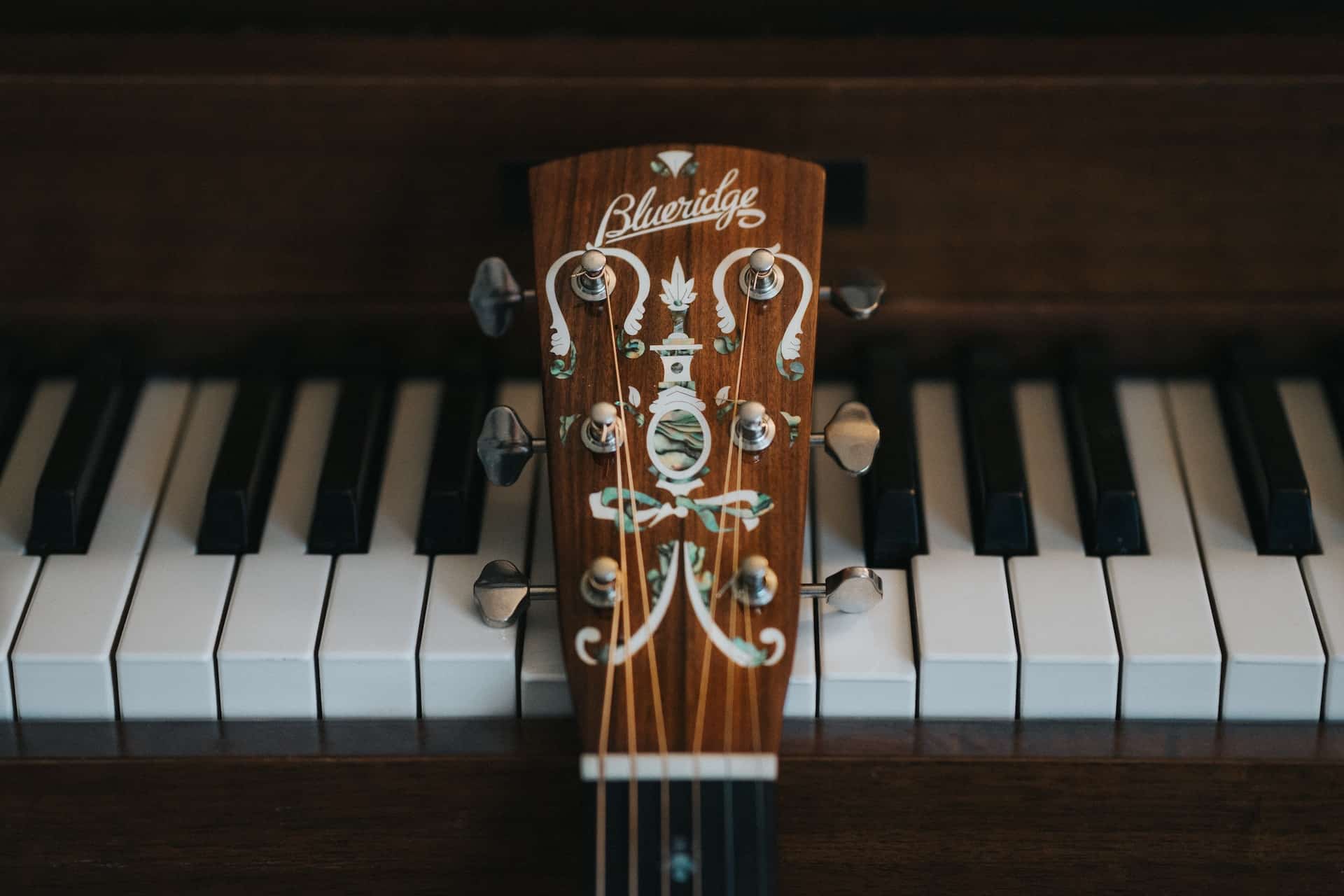

Jazz
How To Learn Jazz Guitar
Modified: January 22, 2024
Learn how to play jazz guitar with expert tips, techniques, and resources. Discover the art of improvisation and master the rhythmic complexity of jazz music.
(Many of the links in this article redirect to a specific reviewed product. Your purchase of these products through affiliate links helps to generate commission for AudioLover.com, at no extra cost. Learn more)
Table of Contents
- Introduction
- Getting Started with Jazz Guitar
- Essential Jazz Guitar Techniques
- Learning Jazz Chords
- Understanding Jazz Scales
- Developing Jazz Guitar Improvisation Skills
- Studying Famous Jazz Guitarists
- Mastering Jazz Guitar Rhythms and Comping
- Playing Jazz Standards on Guitar
- Jazz Guitar Practice Tips and Strategies
- Conclusion
Introduction
Welcome to the exciting world of jazz guitar! Known for its rich harmonies, intricate melodies, and improvisational nature, jazz offers a unique and captivating musical experience. Learning jazz guitar can be both challenging and rewarding, allowing you to delve into the improvisational spirit of this genre and create your own musical voice.
Whether you are a beginner guitarist looking to explore jazz or an experienced player wanting to expand your musical horizons, this comprehensive guide will provide you with the necessary tools and techniques to embark on your jazz guitar journey.
Jazz guitar has a long and rich history, with influential guitarists such as Charlie Christian, Wes Montgomery, and Joe Pass leaving an indelible mark on the genre. By studying their techniques and styles, you can gain valuable insight and inspiration to inform your own playing.
In this article, we will cover essential jazz guitar techniques, including chord voicings, scales, improvisation, and rhythm. We will explore the importance of studying famous jazz guitarists and learning jazz standards to build a strong foundation. Additionally, we will provide practice tips and strategies to help you hone your skills and develop your own unique jazz guitar style.
So, grab your guitar, tune it up, and get ready to immerse yourself in the world of jazz guitar. Whether you aspire to play in a professional jazz ensemble or simply want to explore new musical horizons, this guide will equip you with the knowledge and skills to excel on your jazz guitar journey.
Getting Started with Jazz Guitar
Before diving into the world of jazz guitar, it’s essential to have a solid foundation in basic guitar skills. Familiarize yourself with fundamental techniques such as proper hand posture, picking technique, and fretting notes. This will ensure that you have a strong technical foundation to build upon as you delve into the complexities of jazz.
Next, familiarize yourself with the anatomy of the guitar. Learn about the various parts, including the headstock, neck, frets, and strings. Understanding the instrument’s components will help you navigate the fretboard more efficiently and make it easier to understand lessons and tutorials.
Once you feel comfortable with the basics, it’s time to explore jazz-specific techniques. Start by familiarizing yourself with common jazz chord voicings such as the major 7th, dominant 7th, and minor 7th chords. These voicings provide the foundation for jazz harmony and will be invaluable as you progress.
In addition to chords, developing your jazz guitar vocabulary includes learning various scales, such as the major, minor, and dominant scales. These scales provide the raw material for jazz improvisation and will allow you to craft melodic ideas when soloing.
When it comes to learning jazz standards, begin with tunes that have simple chord progressions, such as “Autumn Leaves” or “All of Me.” These songs are widely performed and provide an excellent starting point for jazz guitarists. As you become more comfortable, you can explore tunes with more complex chord progressions and structures.
Finally, don’t forget the importance of listening to jazz recordings. Immerse yourself in the sounds of jazz guitar legends and pay close attention to their phrasing, tone, and improvisational skills. This will help you internalize the essence of jazz and develop your personal style.
Remember, learning jazz guitar is a journey that requires commitment, practice, and patience. Make sure to allocate regular practice time and focus on specific goals to track your progress. With perseverance and dedication, you will unlock the magic of jazz guitar and join the ranks of the great jazz guitarists who came before you.
Essential Jazz Guitar Techniques
Mastering essential jazz guitar techniques is crucial for developing an authentic and expressive playing style. These techniques serve as the building blocks for creating melodic lines, comping chords, and improvising over jazz standards. Let’s explore some of the key techniques you should focus on:
1. Chord Voicings: Jazz guitarists utilize various chord voicings to create rich and harmonically sophisticated sounds. Expand your knowledge of chords beyond basic open and barre chords, and experiment with different inversions and voicings. Learn common jazz voicings like drop 2, drop 3, and shell voicings.
2. Soloing Techniques: Jazz guitarists are known for their intricate and melodic solos. Develop your soloing skills by learning and practicing scales and arpeggios. Familiarize yourself with scales like the major scale, melodic minor scale, and diminished scale. Mastering intervallic patterns, such as fourths, thirds, and chromatic approach notes, will add a unique flavor to your solos.
3. Hybrid Picking: Hybrid picking involves using a pick in combination with your fingers to create dynamic and versatile soundscapes. This technique allows for greater control over individual notes and string skipping, which is common in jazz guitar playing. Practice alternating between using the pick and plucking with your fingers to achieve a seamless and expressive sound.
4. Damping and Comping: Jazz guitarists often accompany other musicians by comping chords. Develop damping techniques to control unwanted string noise and create a clean and punchy sound. Experiment with different damping methods like muting with your strumming hand and using your fretting hand to partially mute strings.
5. Jazz Guitar Licks: Learning and incorporating jazz guitar licks into your playing can greatly enhance your improvisational skills. Study licks from famous jazz guitarists and analyze how they are constructed. Pay attention to the phrasing, rhythm, and note choices these licks incorporate, and experiment with incorporating them into your own solos.
6. Rhythmic Precision: Jazz is known for its complex rhythms and syncopated grooves. Develop your sense of swing by practicing with a metronome and playing along with jazz recordings. Focus on accenting the off-beats, incorporating triplet rhythms, and experimenting with syncopation to add rhythmic complexity to your playing.
Remember, mastering these techniques takes time and consistent practice. Break down each technique into smaller exercises and slowly build up speed and proficiency. Aim for clarity, accuracy, and musicality in your playing. With dedication and perseverance, you will gradually internalize these techniques and become a well-rounded jazz guitarist.
Learning Jazz Chords
Jazz chords add color, depth, and sophistication to your guitar playing. Learning jazz chords is essential for comping, creating rich harmonic textures, and accompanying other musicians in a jazz ensemble. Here are some important concepts and techniques to help you navigate the world of jazz chords:
1. Extended Chords: Jazz chords often incorporate extended notes beyond the basic triads. Learn about seventh chords (dominant 7th, major 7th, minor 7th, and half-diminished), as well as ninth, eleventh, and thirteenth chords. Extended chords add complexity and richness to your playing, enabling you to capture the essence of jazz harmonies.
2. Chord Inversions: Inversions refer to rearranging the order of notes within a chord. Experiment with different inversions to create smoother voice leading and achieve a more fluid chord progression. Mastery of chord inversions allows for better harmonic movement and facilitates chord transitions in your playing.
3. Shell Voicings: Shell voicings are minimalist jazz chord voicings that consist of the essential notes of a chord. Typically, they include the root, third, and seventh. Shell voicings provide a strong harmonic foundation and are an excellent starting point for creating more complex chord voicings.
4. Drop 2 and Drop 3 Voicings: Drop 2 and drop 3 voicings are common and versatile jazz guitar chord voicings. In a drop 2 voicing, you take a four-note chord and drop the second highest note down an octave. A drop 3 voicing follows a similar principle, but drops the third highest note. These voicings offer a full and spread sound, suitable for various chord progressions and styles.
5. Sliding and Voice Leading: Smooth voice leading is essential in jazz chord progressions. Learn to slide between different chord voicings to create seamless transitions and melodic movement. Focus on connecting common tones between chords and minimizing movement in individual voices for smoother harmonic progressions.
6. Transcribing Chord Voicings: Jazz is an aural tradition, so listening to and transcribing chord voicings played by jazz guitarists is a valuable practice. Transcribe chord voicings from recordings of your favorite jazz guitarists to expand your chord vocabulary and gain insight into their harmonic choices.
Remember, learning jazz chords requires patience and perseverance. Start by practicing basic chord shapes and gradually build up to more complex voicings. Utilize jazz standards and chord progressions to practice chord changes and explore different voicings. With consistent practice and a willingness to experiment, you will develop a solid foundation in jazz chords and open up a world of creative possibilities on the guitar.
Understanding Jazz Scales
Jazz scales form the melodic foundation for improvisation in jazz guitar playing. Understanding and mastering jazz scales is crucial for creating interesting and expressive solos. Let’s explore some essential jazz scales that will help you unlock the secrets of jazz improvisation:
1. Major Scale: The major scale is the cornerstone of Western music and serves as the basis for many jazz compositions. Understanding the major scale and its modes (such as the Ionian, Dorian, and Mixolydian modes) allows you to navigate through different tonalities and explore melodic possibilities.
2. Melodic Minor Scale: The melodic minor scale is commonly used in jazz for its unique tension and color. It features a raised sixth and seventh compared to the natural minor scale. Experiment with the melodic minor scale and its modes, such as the Dorian b2 and the Lydian Augmented scales, to add a sophisticated edge to your improvisations.
3. Harmonic Minor Scale: The harmonic minor scale is characterized by its distinct interval pattern, featuring a raised seventh scale degree. It is often employed in jazz to create tension and resolve to the tonic chord. Explore its modes, such as the Locrian #6 and Ionian #5 scales, to tap into the rich harmonic possibilities.
4. Diminished Scale: The diminished scale is an eight-note scale built upon alternating whole steps and half steps. It is commonly used in dominant chord contexts and offers a unique and intricate sound. Practice incorporating the half-whole and whole-half diminished scales into your solos to add tension and dissonance.
5. Blues Scale: The blues scale is a staple in jazz and blues improvisation. It consists of the minor pentatonic scale with an added blues note (also known as the flat fifth or “blue” note). Mastering the blues scale and its variations will allow you to infuse your solos with soulful and expressive phrases.
6. Bebop Scale: The bebop scale is a major or dominant scale with an added chromatic passing tone between the seventh and root. It is widely used in bebop jazz to create smooth and flowing lines. Practice playing bebop scales in various keys and tempos to develop your sense of swing and melodic phrasing.
Remember, learning jazz scales is not merely about memorizing patterns. It’s crucial to practice these scales in different musical contexts and explore their melodic potential by experimenting with rhythm, articulation, and phrasing. Listen to recordings of jazz greats and analyze their use of scales in improvisation to gain inspiration and insight into jazz vocabulary.
By familiarizing yourself with these essential jazz scales and incorporating them into your practice routine, you will gain the necessary tools to improvise confidently and create melodic lines that reflect the spirit of jazz.
Developing Jazz Guitar Improvisation Skills
Improvisation lies at the heart of jazz guitar playing, allowing you to express your musical ideas and engage in dynamic musical conversations. Developing your improvisation skills is crucial for becoming a versatile and confident jazz guitarist. Here are some tips to help you on your journey:
1. Transcribe Solos: One of the most effective ways to develop your improvisational skills is by transcribing solos from jazz guitarists and other instrumentalists. Listen closely to the nuances, phrasing, and note choices they use and incorporate their ideas into your own playing. Transcribing solos will help you internalize the language of jazz and build a strong foundation for improvisation.
2. Learn Jazz Vocabulary: Jazz has its own unique vocabulary of melodic phrases and licks. Study jazz standards and learn common jazz vocabulary associated with specific chord progressions. Practice integrating these phrases into your improvisations to develop a strong jazz vocabulary and expand your musical language.
3. Ear Training: Developing your ear is vital for improvisation. Train your ears to recognize chord progressions, intervals, and melodic patterns. Practice transcribing melodies, chords, and solos by ear, as this will help you internalize the sounds and develop a deeper understanding of jazz harmony.
4. Study Jazz Harmony: A solid understanding of jazz harmony will greatly enhance your improvisation. Learn about chord substitutions, reharmonization, and chord extensions. Study different voicings and analyze how they relate to each other within chord progressions. Understanding the underlying harmony will enable you to make informed melodic choices and create rich musical textures in your solos.
5. Embrace Rhythm and Groove: Jazz is a rhythmically rich and diverse genre. Develop your sense of rhythm and groove by practicing with a metronome and playing along with recordings. Experiment with syncopated rhythms, swing feel, and different subdivisions to add depth and excitement to your improvisations.
6. Play with Others: Jazz is a collaborative genre, so make an effort to play with other musicians as often as possible. Jam sessions and ensemble playing will expose you to new musical ideas, teach you how to interact in a musical setting, and challenge you to respond spontaneously to the music. This will push your improvisation skills to new heights.
Remember, the key to developing your jazz guitar improvisation skills is consistent practice and immersion in the genre. Dedicate regular time to practicing scales, arpeggios, and learning jazz standards. Explore different stylistic approaches, from bebop to modal jazz, to broaden your improvisational palette. Above all, embrace the creative freedom that comes with improvisation and allow your unique musical voice to shine through.
Studying Famous Jazz Guitarists
Studying the techniques and styles of famous jazz guitarists is an essential part of your development as a jazz guitarist. These influential figures have left an indelible mark on the genre, shaping the way jazz guitar is played and influencing generations of musicians. Here are some reasons why studying famous jazz guitarists is invaluable:
1. Learning from Masters: Famous jazz guitarists like Charlie Christian, Wes Montgomery, Joe Pass, and Pat Metheny have pioneered groundbreaking techniques and developed unique musical voices. By studying their recordings and performances, you can gain valuable insights into their approach to phrasing, improvisation, and tone production. Emulating their playing and incorporating their ideas into your own style will elevate your playing to new heights.
2. Jazz Vocabulary: Famous jazz guitarists have contributed extensively to the jazz vocabulary. Studying their solos and licks will expose you to a vast array of melodic and harmonic ideas. This will not only increase your improvisational skills but also expand your musical language, allowing you to express yourself more fluently in a jazz context.
3. Developing Your Sound: Each jazz guitarist has a unique sound and tone. By listening to and analyzing the recordings of famous jazz guitarists, you can gain insights into their gear selection, amplification choices, and playing techniques. This can help you refine your own sound and craft your individual sonic identity as a jazz guitarist.
4. Understanding Jazz Styles: Famous jazz guitarists have played in various jazz styles, from swing to bebop, cool jazz to fusion. Studying their discographies will expose you to different jazz styles, allowing you to immerse yourself in the specific nuances and characteristics of each style. This will help you develop a well-rounded understanding of jazz and enable you to adapt your playing to different musical situations.
5. Appreciating Musical Traditions: Jazz guitarists have been an integral part of the rich history and tradition of jazz music. By studying famous jazz guitarists, you gain a deeper appreciation for the contributions they have made to the genre and the broader cultural significance of jazz. This knowledge helps you connect with jazz music on a deeper level and fuels your passion for this art form.
6. Inspiration and Motivation: Famous jazz guitarists serve as a constant source of inspiration and motivation. Listening to their recordings and witnessing their virtuosity can ignite a fire within you to push your own musical boundaries. Their unparalleled skill and musicality can fuel your desire to practice and improve, inspiring you to reach new heights as a jazz guitarist.
When studying famous jazz guitarists, immerse yourself in their music and absorb their playing style, techniques, and musical ideas. Analyze their solos, study their chord voicings, and experiment with incorporating their concepts into your own playing. By doing so, you will not only pay homage to these legendary musicians but also develop your own unique voice as a jazz guitarist.
Mastering Jazz Guitar Rhythms and Comping
Jazz guitar is not just about playing solos; it is equally important to master the art of rhythm and comping. Playing solid rhythms and providing harmonically rich accompaniment are crucial skills for any jazz guitarist. Here are some tips to help you master jazz guitar rhythms and comping:
1. Develop a Strong Sense of Swing: Swing is the backbone of jazz music. Practice playing with a swing feel, emphasizing the off-beats and creating a groove that propels the music forward. Experiment with different rhythmic subdivisions, swing ratios, and syncopated rhythms to develop your sense of swing and add rhythmic complexity to your playing.
2. Study Rhythmic Vocabulary: As a jazz guitarist, it’s essential to have a diverse rhythmic vocabulary. Listen to recordings of famous jazz guitarists and other rhythm section players. Study their rhythmic patterns, strumming techniques, and chord voicings. Incorporating their rhythmic ideas into your playing will enhance your comping abilities and make your accompaniment more interesting and musical.
3. Focus on Syncopation: Syncopation is a hallmark of jazz rhythm. Practice accenting the off-beats, adding syncopated hits, and experimenting with rhythmic displacements. Mastering syncopation will bring energy and excitement to your comping, making your guitar playing groove in the jazz ensemble.
4. Voice Leading: Voice leading is the art of smoothly transitioning between chords by moving individual voices as little as possible. Study different chord voicings, inversions, and voice leading principles. Practice comping using close voice leading to create seamless and harmonically rich chord progressions.
5. Listen to and Observe Other Musicians: Pay close attention to the rhythm section players, such as drummers and pianists, in jazz recordings. Observe how they interact and support the soloist. Listen to their comping techniques, rhythmic variations, and chord voicings. Incorporating ideas from other musicians will help you develop a strong sense of groove and enhance your comping skills.
6. Experiment with Different Comping Styles: Jazz comping can take various forms, from playing sparse chord stabs to using more intricate rhythmic patterns. Experiment with different comping styles and approaches, such as Freddie Green-style four-to-the-bar comping or more modern, rhythmically complex approaches. Developing a wide range of comping techniques will allow you to adapt to different musical situations and play in various jazz styles.
Remember, mastering jazz guitar rhythms and comping takes time and practice. Dedicate regular practice sessions to focus specifically on rhythm and comping techniques. Play with a metronome, practice with backing tracks, or join a jam session to hone your skills in a musical setting. By mastering jazz guitar rhythms and comping, you will become an invaluable member of any jazz ensemble, providing a strong foundation and driving the music forward with your rhythmic prowess.
Playing Jazz Standards on Guitar
Jazz standards are the backbone of the jazz repertoire, and being able to play them on the guitar is an essential skill for any jazz guitarist. These timeless compositions provide a platform for improvisation, collaboration, and expressing the language of jazz. Here are some tips for playing jazz standards on guitar:
1. Learn the Melodies: Start by learning the melodies of jazz standards. Listen to recordings and study the original melodies. Play them on your guitar, paying close attention to the phrasing, articulation, and nuances. Internalizing the melodies will help you understand the harmonic structure and guide your improvisations.
2. Analyze the Harmonic Progressions: Familiarize yourself with the chord progressions of jazz standards. Analyze the harmonic movements and relationships between chords. Identify the key centers, modulations, and common chord substitutions within the song. This knowledge will guide your comping and soloing, enabling you to make informed melodic choices.
3. Explore Different Chord Voicings: Experiment with different chord voicings when comping on jazz standards. Use various inversions, extensions, and altered chord voicings to add interest and color to your accompaniment. Practice voicings that allow for smooth voice leading and maintain a strong harmonic foundation.
4. Internalize the Rhythmic Feel: Jazz standards can be played in a variety of rhythms and styles. Practice playing the same standard in different rhythmic feels, such as swing, bossa nova, or even a funk groove. Experiment with various rhythmic patterns and syncopations to capture the essence of each tune and make it your own.
5. Study Recordings: Listen to different interpretations of jazz standards by renowned jazz guitarists and other instrumentalists. Pay attention to their approach to soloing, comping, and improvisation. Study their melodic ideas, phrasing, and use of dynamics. This will provide you with inspiration and new possibilities for your own playing.
6. Play with Others: Invite fellow musicians to join you in playing jazz standards. Playing with a rhythm section or other soloists will enhance your ability to interact, comp, and respond to other musicians. It will also help you develop a deeper understanding of the musical conversation and dynamics within the ensemble.
Remember, playing jazz standards on the guitar is a continual learning process. Take your time to internalize the melodies, analyze the harmonies, and experiment with different approaches. Commit to regular practice and exploration of jazz standards to develop your own unique interpretations and improvisational skills. By immersing yourself in the world of jazz standards, you will not only strengthen your jazz guitar playing but also gain a deeper appreciation for the rich history and heritage of jazz music.
Jazz Guitar Practice Tips and Strategies
Practicing effectively is key to mastering jazz guitar. Here are some tips and strategies to optimize your jazz guitar practice sessions:
1. Set Clear Goals: Define specific goals for each practice session. Whether it’s mastering a new jazz chord voicing, improving your improvisation over a particular jazz standard, or working on a specific technique, having clear objectives keeps you focused and motivated.
2. Warm-Up Exercises: Begin each practice session with warm-up exercises to loosen up your fingers, improve dexterity, and increase finger strength. Utilize chromatic exercises, scales, and arpeggios to get your hands warmed up and ready for more challenging playing.
3. Slow and Steady Tempo: Starting with a slow tempo allows you to focus on accuracy, clarity, and proper technique. Gradually increase the tempo as you become more comfortable and confident. Remember, it’s better to play something correctly at a slower tempo than to rush through it with mistakes.
4. Focus on Technique: Dedicate regular practice time to mastering essential jazz guitar techniques, such as scales, arpeggios, chord voicings, and strumming patterns. Isolate challenging passages and practice them slowly, gradually increasing the speed while maintaining accuracy and control.
5. Transcribe Solos and Chord Voicings: Transcribing jazz solos and chord voicings from recordings of your favorite jazz guitarists is an invaluable practice. Train your ear to recognize and replicate their phrasing, note choices, and rhythmic patterns. Transcription helps internalize the language of jazz and enhances your improvisation and comping skills.
6. Play Along with Backing Tracks: Utilize backing tracks to create a musical environment while practicing. Play along with jazz standards or specific chord progressions to develop your sense of timing, feel, and interaction within a group setting. This helps improve your comping skills and prepares you for real-life playing situations.
7. Record and Evaluate Yourself: Record your practice sessions and take the time to evaluate your playing objectively. Listen for areas that need improvement, such as timing, intonation, or clarity of notes. This allows you to identify weaknesses and track your progress over time.
8. Be Consistent: Regular and consistent practice is essential for growth. Set aside dedicated practice time each day, even if it’s just 15 minutes. It’s better to have short, focused practice sessions every day than to have infrequent, long practices. Consistency breeds progress.
9. Explore Different Styles and Artists: Expand your musical horizons by listening to various jazz guitarists across different styles. Explore the works of diverse jazz guitar masters, from bebop to contemporary fusion. Emulate their styles, phrasing, and rhythmic approaches to broaden your musical vocabulary.
10. Stay Inspired: Keep your passion alive by listening to jazz recordings, attending live performances, and engaging with other musicians. Surround yourself with a supportive and inspiring musical community, which can fuel your motivation and provide valuable opportunities for growth.
Remember, practicing jazz guitar is a lifelong journey. Stay committed, patient, and persistent. With regular and focused practice, you will continue to develop your skills, deepen your understanding of jazz, and ultimately find your unique voice as a jazz guitarist.
Conclusion
Congratulations on exploring the fascinating world of jazz guitar! Throughout this comprehensive guide, we have covered essential aspects of learning and mastering jazz guitar. We have delved into topics such as getting started with jazz guitar, essential techniques, learning jazz chords, understanding jazz scales, developing improvisation skills, studying famous jazz guitarists, mastering jazz guitar rhythms and comping, playing jazz standards, and effective practice strategies.
By incorporating these concepts into your practice routine and dedicating consistent effort, you will embark on a fulfilling journey of growth and musical expression. Remember, learning jazz guitar is a continuous process that requires dedication, patience, and experimentation. It is not just about technical proficiency, but also about developing your musical ear, understanding jazz harmony, and exploring your unique artistic voice.
As you progress on your jazz guitar journey, continually seek inspiration from renowned jazz guitarists and other instrumentalists. Listen to recordings, attend live performances, and engage with fellow musicians to deepen your understanding of jazz music and its traditions. Moreover, be open to exploring different jazz styles and genres, as this will expand your musical horizons and make you a more versatile and well-rounded jazz guitarist.
Remember that, at its core, jazz is about creativity, self-expression, and the joy of making music. Embrace improvisation, experiment with various techniques, and develop your own unique playing style. Challenge yourself to push the boundaries of your comfort zone and fearlessly explore new musical possibilities.
Lastly, while technique and theory are important, never lose sight of the emotional and soulful nature of jazz. Jazz guitar is a means of heartfelt communication and sharing your musical story with others. Let the music speak through your fingers and let your guitar become your voice.
So, pick up your guitar, immerse yourself in the sounds of jazz, and let the magic unfold. Whether you aspire to play in a professional jazz ensemble, jam with friends, or simply enjoy the process of learning and growing as a musician, the journey of jazz guitar promises to be a rewarding and fulfilling one. Happy playing!











